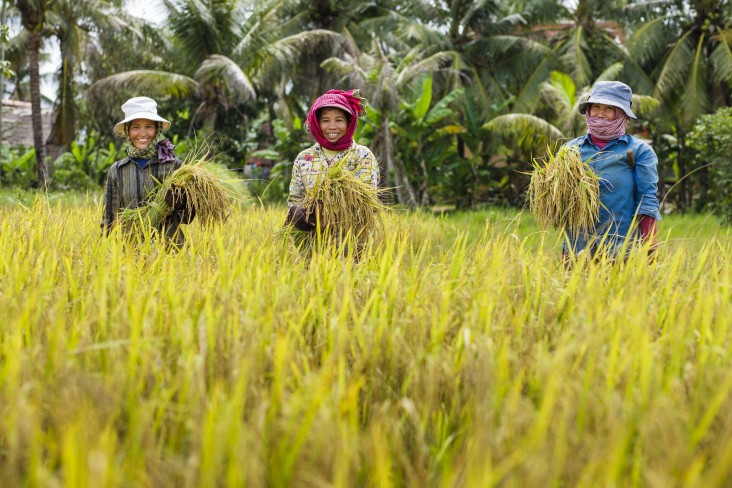
Agriculture has the potential to be an engine for economic growth and food security in Cambodia, but the country must improve its production and post-harvest infrastructure, streamline the business environment, and increase capacity for financial services to reach rural entrepreneurs. Nearly 80 percent of Cambodians live in rural areas, and 70 percent rely on agriculture, fisheries, and forestry for their livelihoods. One-fourth of Cambodians are food deprived, which means they eat less than the minimum daily requirement of calories.
The Feed the Future program supports the Cambodian government’s development strategy by increasing the country’s agricultural productivity, improving the well-being of the rural poor, and promoting sustainable management of the country’s rich natural resources. The overriding objective is to support the achievement of Cambodia’s development goals, including halving the proportion of people who suffer from malnutrition and achieving the sustainable use of environmental resources. USAID is developing agricultural solutions to a variety of challenges, including poor agricultural productivity, postharvest losses, food safety, lack of market access, environmental degradation and the effects of climate change. USAID is bringing together both the public and private sectors overcome these challenges.
ACTIVITIES
- Strengthening Cambodia’s research and extension institutions to train the country’s future cadre of agriculture professionals
- Improving the lives of women and children by increasing access to nutritious foods and strengthening the agriculture and health systems on which they rely
- Empowering communities to better manage their farms and natural resources to improve nutrition in the face of climate change
- Multiplying our projects’ reach by leveraging private sector resources to strengthen farmer organizations and the market systems and linkages on which they depend








Comment
Make a general inquiry or suggest an improvement.